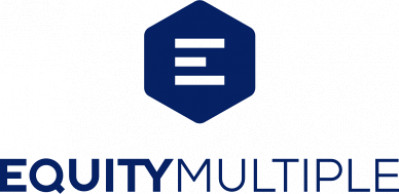The accredited investor platform notes indicators point to a recession, which may create opportunities as lenders pull back and interest rates fall.
NEW YORK, July 18, 2023 (Newswire.com)
–
A recent survey found that 68% of Americans expect a recession before the end of the year and of those, 80% expect it to be severe. Additionally, 62% of respondents said a recession will be as severe or worse than the Great Recession of 2007-2009. EquityMultiple, a fintech firm that provides a unique private-market real estate investing platform for self-directed investors, assesses how the potential recession may impact real estate capital markets and real estate investors.
While employment and income growth remain strong, manufacturing activity and industrial production are weak, the Conference Board reported. In addition, short-term yields on Treasury bonds have been exceeding long-term yields, one of the most consistent indicators of a coming recession.
If the economy does slide into a recession, investors can still find growth in traditionally stable vehicles, EquityMultiple reports.
“We feel that private-market real estate investing is inherently well-positioned for uncertain times. If a recession does hit, we feel like the specific market dynamics will create opportunity across the capital stack. As always, we’ll be looking to source a variety of timely opportunities for our investors,” said Soren Godbersen, chief growth officer at EquityMultiple.
Godbersen notes the conflation of the two sectors’ performance creates potential opportunities.
The banking sector is retrenching as the Federal Reserve’s aggressive interest rate hikes, in response to persistent inflation, have begun to affect the entire economy. The average spread for traditional commercial real estate lending increased rapidly, with a record low cost of capital increase to the highest rates in almost 20 years.
Traditional lenders also are tightening balance sheets in response to the collapse of Silicon Valley Bank and general fears of lurking weaknesses in the financial system. While few banks appear vulnerable to interest rate risk, the banking industry has become cautious, even the healthy regional banks that provide most commercial real estate (CRE) lending.
As traditional lenders tighten their balance sheets, real estate sponsors and operators see fewer financing options. That pullback from regional banks and other sources, and the higher underwritten cost of capital, has driven many would-be buyers out of the market. By the end of 2022, CRE transaction volume fell off in the second half of the year nearly 20% from the previous year.
However, most commercial real estate sectors could still benefit from strong underlying demand drivers in the months ahead, with demographic shifts and supply constraints supporting opportunities for many property types and markets. Net migration to tier II metros, high rates of household formation, low supply of affordable rental units, and potential growth in labor productivity all serve as examples of demand drivers. Job growth continues to exceed forecasts; job growth and low cost of living drive strong migration in many markets like Dallas and others; and consumer confidence remains high.
Historically, real estate has held its value during recessions better than other assets in part because of scarcity. In desirable areas and cities, there may be a limited supply of existing properties and little available land for construction activity, which falls off in a recession regardless. In addition, studies show the value of property classes, including multi-family and self-storage, outpace inflation.
“Take these dynamics together and a macro picture emerges: real estate markets rife with potential but hampered by friction in debt capital markets,” Godbersen said. “In other words, the withdrawal of major lenders from the commercial real estate debt markets has created a supply-demand imbalance. This creates an opportunity for private CRE lenders.” EquityMultiple acts as a private lender for real estate operators while offering debt investments to individual investors within its ‘Earn’ pillar on the platform.
One opportunity stems from the rise in interest rates, which have depressed real estate values over the short term and have also stressed the finances of real estate owners and operators. Experienced sponsors and operators can take advantage of these short-term value declines and pressures on owners to acquire quality assets on an attractive basis.
Moreover, with the Fed signaling an end to interest rate hikes, and a recession potentially on the horizon, interest rates should decline in the short-to-medium term, making these distressed opportunities more attractive. EquityMultiple sees certain asset classes particularly well suited as investment opportunities during a recession, particularly given other current market dynamics: multifamily, self-storage, medical office buildings, and last-mile industrial.
Multifamily housing is strong because single-family housing is unaffordable, mortgage rates are high, and young adults are trending toward leaving home (or splitting from roommates) and forming households. Medical offices are seeing high occupancy and rents as patients return to strongly preferred in-person visits. Self-storage continues to benefit from counter-cyclical demand factors and low capital expenditure; and industrial is coming back with improved supply chain logistics and a continued shift to e-commerce.
EquityMultiple continues to focus on the CRE middle market: real estate transactions in the $20M to $100M total capitalization range. Those sponsors and developers have regional focus and experience on business plans in their market and normally utilize their strong regional banking relationships but now seek a reliable lender with strong debt-financing options.
“We see an exceptional opportunity to provide private credit solutions to the middle market,” Godbersen said. “In so doing, we believe we have a unique opportunity to deliver our investors strong, diversified, risk-adjusted returns and attractive income.”
EquityMultiple may be uniquely well-positioned to offer timely real estate investments given its focus across the capital stack. The firm brings individual investors both private debt-based investments — typically offering a fixed rate of return and relatively short terms — as well as LP equity investments, where distressed asset acquisitions may offer compelling upside.
For more information, please visit https://www.equitymultiple.com.
About EquityMultiple
EquityMultiple is a commercial real estate investment and technology firm whose mission is to build investor wealth through streamlined access to diverse real estate investment products. To date, EquityMultiple’s investors have participated in over $4.5 billion in commercial real estate transactions through its online investing platform. The firm pairs innovative technology with real estate experience via its subsidiary, EMIP, and industry-leading investor services, to offer an unparalleled investing experience.
For more information, please visit https://www.equitymultiple.com. All prospective real estate sponsors and developers interested in working with the EquityMultiple platform should direct all inquiries to EMIP at www.eminvestmentpartners.com.
Contact Information:
Mike Albanese
Original Source:
EquityMultiple Assesses Whether Real Estate Can Outperform During a Recession



